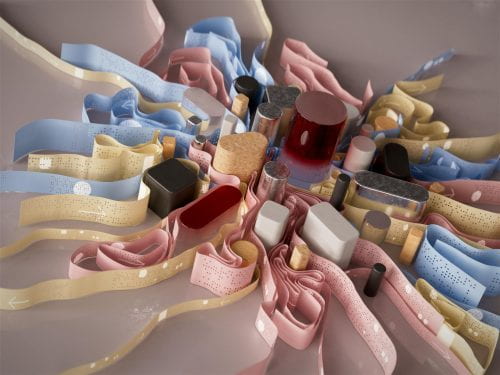A talk by Amherst Professor Joseph Moore | April 11th @ 2:30p in Paino Lecture Hall, Beneski 107
The rise of Artificial Intelligence and its application to the creative and artistic fields has given us all much to think about. In this event, part of AILA Spring 2024 Learning & Discussion Series, Professor Joseph G. Moore presents his latest paper, The Antinomy of Artificial Art, on AI and the possibilities of creative legal authorship. To learn more read the abstract below!
Paper abstract: Generative AI is transforming the ways we make, and think about art. With prompting from human users, AIs now produce aesthetically compelling and seemingly creative works in a variety of artistic domains. In the visual domain, AIs like Dall-E, Midjourney, and Stable Diffusion challenge the ways we think about artistic credit, about creativity, and about the mechanism of legal copyright, which is meant to protect and promote creativity in a capitalist art market. All of this is currently at play in the courtroom, as artists contest the ways in which their artworks can be rightfully fed into these artificial systems (“the problem of the inputs”), and others are challenged over whether they can be credited for the visual images these systems generate (“the problem of the outputs”). I’ll suggest in this talk that this legal controversy reflects a deep conceptual puzzle—or antinomy—at the core of our received notions of creativity and artistic credit. Resolving this antinomy will involve revising not only these concepts, but quite possibly our conception of art itself.
This event is open to anyone interested in the complex interactions between Artificial Intelligence and Art as well as anyone wanting to think critically in the realm of AI and creative practice. We welcome faculty, staff, and students from the Five Colleges!
Presenter Bio:

Joseph Moore is Crosby Professor of Philosophy and Environmental Studies at Amherst College. He carries out research in the philosophy of mind, in metaphysics and, more recently, in aesthetics–particularly the philosophy of music. He has just started to think about the interaction between Artificial Intelligence and aesthetics.
